MSc Civil Engineering
ApplyKey facts
- Start date: January & September
- Accreditation: Institution of Civil Engineers, Institution of Structural Engineers, Chartered Institution of Highways and Transportation & Institute of Highway Engineers, Permanent Way Institution (PWI)
- Study mode and duration: 12 months full-time; 24 or 36 months part-time (September start only)
Athena Swan Gold Award in 2022: the Department of Civil & Environmental Engineering became the first engineering department in the UK to achieve an Athena Swan Gold award for its commitment to advancing gender equality in higher education.
Industry engagement: Opportunity to apply to work with individual industry projects and industry-led group design projects.
Study with us
- Designed to meet the needs of a broad range of civil engineering industries
- Gain the specialist and generic skills necessary to lead future developments
- Laboratory-based dissertation benefiting from our purpose-built laboratory facilities (if your application is successful)
- MSc dissertation co-supervised by industry (if your application is successful), (in 2024/25, supervision by Network Rail on ‘Evaluation and modelling of boulder roll out and rock fall risk’)
- Industry-led Group Design project (if you register to one of the two 'Sustainability' pathways), (in 2024/25, projects mentored by Arcadis, Ocean Winds, and Skanska on ‘Adding Bicycle and Pedestrian Access on Existing Vehicle Bridge’, ‘Routing of Transmission Connection Assets for an Offshore Wind Farm’, and ‘Sustainable Reinforcement of a Roadway Embankment’)
Accreditation
This degree is accredited by the
- Institution of Civil Engineers (ICE)
- Institution of Structural Engineers (IStructE)
- Chartered Institution of Highways and Transportation (CIHT)
- Institute of Highway Engineers (IHE)
- Permanent Way Institution (PWI)
on behalf of the Engineering Council as: meeting the requirements for Further Learning for a Chartered Engineer (CEng) for candidates who have already acquired a partial CEng accredited undergraduate first degree.*
See Joint Board of Moderators website for further information.
*It should be noted that candidates completing the MSc who hold an underpinning accredited IEng degree or a non-accredited bachelor degree will need to apply for an academic assessment to determine whether they will meet the educational base for CEng registration.
The Place of Useful Learning
UK University of the Year
Daily Mail University of the Year Awards 2026
Scottish University of the Year
The Sunday Times' Good University Guide 2026
Why this course?
The MSc Civil Engineering offers two options:
- a general option if you’re looking to convert to civil engineering (or for those wishing to diversify/complement their existing skills)
- if you have a background in civil engineering you can choose our 'sustainable pathways' route
General option
We offer a generalist MSc in Civil Engineering, to allow applicants with a degree in environmental engineering, earth science, maths, physics, and mechanical engineering to do an accredited MSc to convert to civil engineering.
The generalist MSc in Civil Engineering is also suited to those with a background in civil engineering and wishing to diversify/complement their skills.
You can select optional modules from the general Civil Engineering curriculum.
Sustainable pathways
If you have a background in civil engineering you can opt for an MSc with the following sustainable pathways:
- Sustainable Structural & Geotechnical Infrastructure
- Sustainable Water & Environmental Management
If you choose the pathways, you'll still apply and enrol as an MSc Civil Engineering student. Your selection will be made during induction week.
Net zero & sustainable development
In addition to modules in Structural and Geotechnical Engineering or Water and Environmental Management, we propose modules addressing ‘net zero and sustainable development’ and offer robust industrial engagement via industry-led design group projects and the possibility to conduct an MSc dissertation co-supervised by industry.
The Institution of Civil Engineers’ State of the Nation: Infrastructure in 2024 report emphasises the need for a new generation of engineers trained in carbon-efficient and climate-resilient infrastructure and sustainable management of natural resources.
This MSc is designed to address this challenge including a robust industrial engagement.

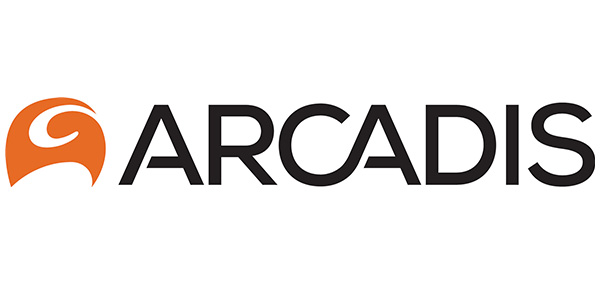



What you’ll study
We offer a ‘generalist’ MSc in Civil Engineering by selecting optional classes of your choice from the general Civil Engineering curriculum.
We also offer an MSc in Civil Engineering with two ‘sustainability’ pathways:
- Sustainable Structural & Geotechnical Infrastructure
- Sustainable Water & Environmental Management
The distinctive feature of the pathways is that they enable access to the industry-led design group project and application to MSc dissertations co-supervised by industry.
Generalist MSc versus the MSc with sustainability pathways
You'll take the compulsory module ‘Civil Engineering Design Projects’ in both the generalist MSc and MSc with sustainability pathways. This module allows you to work on real projects. Students currently undertake a renewable energy project.
If you're following one of the two sustainability pathways you can select an industry-led project. You’ll develop comprehensive and innovative designs that involve structural engineering, geotechnical engineering and water engineering, management, environmental and financial planning.
In both generalist MSc and MSc with sustainability pathways, you'll also take the compulsory module 'Qualitative & Quantitative Research Methods', which supports the dissertation project.
In the generalist MSc, you can select optional modules of your choice for a general Civil Engineering curriculum. We have a wide range of optional modules, and you will take 60 credits from List A plus 30 credits from List A or B (see Course Content).
You can also select one of the two pathways, 'Sustainable Structural and Geotechnical Infrastructure' or ‘Sustainable Water and Environmental Management’ (see Course Content). The pathway enables access to the industry-led design project and application to MSc dissertation co-supervised by industry.
Following successful completion of the taught component, you’ll undertake a dissertation.
Industry engagement
As part of the class 'Independent Study in Collaboration with Industry', you can apply to work with industry projects. If you select modules within one of the two pathways, you can apply to an MSc dissertation co-supervised by industry.
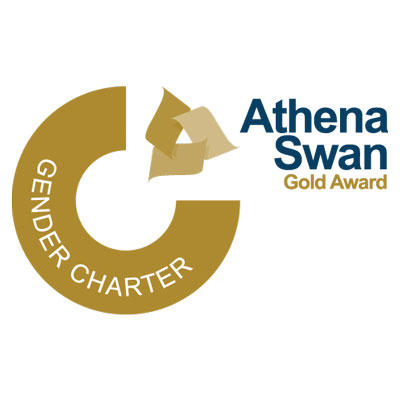
We've been awarded the Athena Swan Gold Award for our commitment to improve equality, and being an inclusive and supportive place to work and study.
Videos from MSc Civil Engineering lecturers
Professor Alessandro Tarantino
Watch the Géotechnique Lecture delivered by Professor Alessandro Tarantino in November 2023 ‘Bringing vegetation-based solutions into geotechnical engineering design: how do we make it happen?’
The Géotechnique Lecture is a biennial top lecture in geotechnical engineering, nominated by the editorial panel of the world's premier geotechnics journal Géotechnique and organised by the British Geotechnical Association and the Institution of Civil Engineers
Dr Doug Bertram
Watch Dr Doug Bertram presenting the Venturo Pump, to lift water without the input of electricity or fuel supply to power the pump. This is a an Innovate UK joint project between Strathclyde and the SME company Water Powered Technologies Ltd based in Bude, Cornwall.
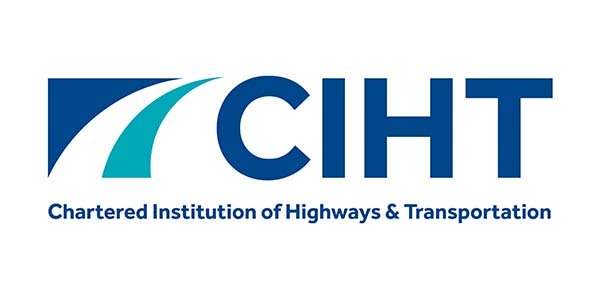
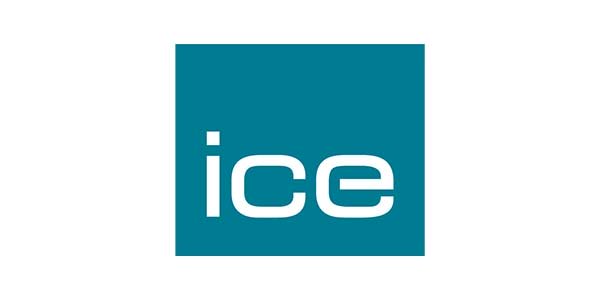
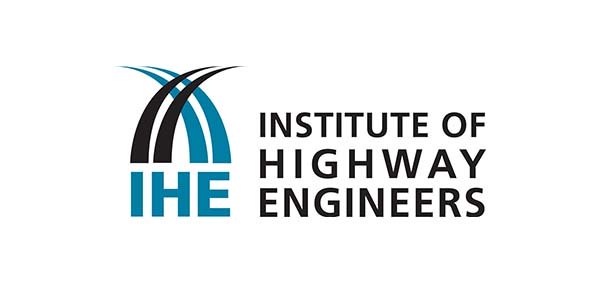
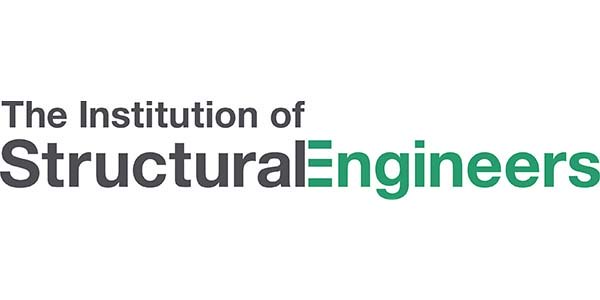
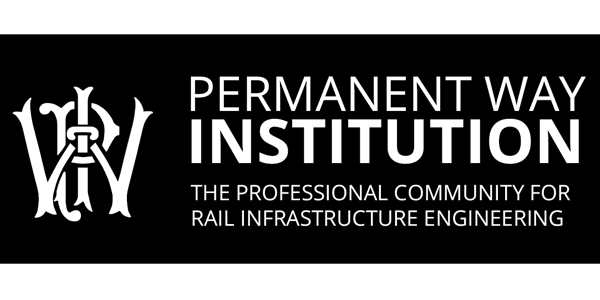
Course content
You can graduate with an MSc in Civil Engineering (generalist) by selecting optional classes of your choice from the general Civil Engineering curriculum.
You can also choose one of the two ‘sustainability’ pathways:
- Sustainable Structural & Geotechnical Infrastructure
- Sustainable Water & Environmental Management
The distinctive feature of the pathways is that they enable access to the industry-led design group project and application to MSc dissertations co-supervised by industry.
Compulsory classes:
- Group Design Project
- Qualitative and Quantitative Research Methods.
Optional classes:
- Six from List A
- Three from List A or B
List A
Sustainable Ground Improvement & Reinforcement (10 credits)
This class covers the principles and techniques of ground improvement and soil reinforcement. You’ll apply the appropriate design methods in various ground conditions including the use of computer-aided design.
Necessary requirement for this class
Understanding of the principles, techniques and methods of analysis for ground improvement and soil reinforcement, piles and pile groups, and the application of these techniques for design in various ground conditions.
Prerequisite: This class is for those from a Civil Engineering (or related Engineering) programme.
Site Investigation & Risk Assessment* (10 credits)
This class explores the complete sequence of a site investigation:
- Desk study
- Site sampling organisation and techniques
- Data collection
- Chemical analysis
The class also covers data modelling and interpretation using risk assessment models.
Advanced Structural Analysis and Sustainable Design (10 credits)
This class examines the links between form, geometric shape, and structural performance and design. It deals with different ways of breaking up a continuum, and how this affects global structural properties, structural concepts and preliminary design methods that are used in tension structures, and deployable structures.
You’ll also look at the fundamental principles of composite structures.
Necessary requirement for this class
Understanding of structural analysis (finding reactions in statically determinate and indeterminate structures – trusses, beams, frames; construction of shear force and bending moment diagrams; main principles of elastic analysis), basic grounding in matrix algebra, basic programming knowledge (in any language).
Prestressed Concrete, Composite Materials & Structural Stability (10 credits)
The overall aim of the class is to provide you with strong skills in the structural behaviour, analysis and design of civil engineering structures.
You’ll gain an understanding of the fundamental principles of structural stability and become familiar with common types of bifurcation and buckling phenomena. This will allow you to formulate methods capable of dealing with geometrically non-linear structural behaviour.
You’ll also gain knowledge of structural behaviour structural systems commonly adapted by the construction industry including prestressed concrete and concrete-steel composite members.
Necessary requirement for this class
Understanding of fundamentals of structural mechanics; fundamentals of reinforced concrete design (reinforced concrete technology, serviceability and ultimate limit state analysis.
Waste Management & Landfill Design* (10 credits)
This class, run by the Department of Civil and Environmental Engineering, covers organisational and regulatory aspects of waste management practice in the UK:
- legislation
- composition of domestic and industrial wastes
- storage
- collection
- reception
- disposal of solid wastes, clinical wastes, sewage sludge disposal, recycling and recovery
The class discusses common methods used in the management and treatment of solid municipal waste:
- recycling
- thermal treatment of solid waste (incineration, gasification, pyrolysis)
- biological treatment of solid waste (anaerobic digestion and composting)
- landfill as a disposal option
Project Management (10 credits)
This class will develop your skills in the use of engineering practices in project management. The focus is on the effective and efficient use of resources. Areas covered include:
- introduction to project management techniques and project control
- basic aspects of project teams
- project networks
- procedural and graphical presentation techniques
- introduction to contract law
- project budgetary control
Climatic hazard to earth infrastructure (10 credits)
This class aims to cover the design of geotechnical structures under ultimate conditions including slopes and retaining walls, based on Eurocode 7.
The syllabus covers these areas:
- Introduction to geotechnical structures - slopes and embankments, shallow foundations, pile foundations, retaining walls
- Stability Analysis of Geostructures
- Earth Retaining Structures
- Slope Stability
Necessary requirements for this class
Understanding of fundamentals of soil mechanics (principle of effective stress, compressibility and consolidation of soil, the shear strength of soils including the critical state framework).
Contaminated Land* (10 credits)
Within the background of land redevelopment (residential, industrial/commercial and gardens/parks), this class, run by the Department of Civil and Environmental Engineering, aims to provide insights into the remediation of contaminated land, including the regulatory framework and risk assessment, sampling and analysis, and various remedial techniques for contaminated land.
On completion of this class you're expected to be able to:
- identify possible human health and environmental risks associated with contaminated land management
- demonstrate a working knowledge of the regulatory framework in place in the UK for contaminated land management and remediation, including relevant legislation, policies and regulations
- evaluate critically the range of technologies that may be suitable for various types of contamination present.
make informed decisions about technologies for contaminated land remediation based upon technical solutions, risk assessment & management, planning and financial constraints
Water & Environmental Management (10 credits)
This module, run by the Department of Civil & Environmental Engineering, develops an understanding of the physical, chemical and biological parameters within surface water and how these relate to water quality, water quality objectives and pollution control strategy.
The class also provides an introduction to water and wastewater treatment.
Water & Wastewater Treatment Design* (10 credits)
This class, run by the Department of Civil and Environmental Engineering, aims to develop a detailed understanding of treatment processes, as well as the ability to undertake design calculations sufficient to produce a concept and detailed design of a water and wastewater treatment plant. On completion of the course you'll be expected to be able to:
- recognise needs of the client and conceptualise appropriate treatment system
- understand water treatment processes, including underlying chemical, physical and biological processes
- understand legislation relevant to water and wastewater treatment and processes required to achieve objectives
- ability to manage imperfect information and uncertainty in design and calculations
Structural Health Monitoring (10 credits)
The course aims to provide the fundamentals of health monitoring of civil structures, and includes the following topics:
- the logic of structural identification based on sensor observations
- an overview of sensor technologies for civil applications, with focus on accelerometers, strain gauges, thermocouples, fibre-optic sensors and wireless sensors
- numerical methods for signal processing and data analysis
- analysis of case studies, including bridges, buildings and heritage structures
Necessary requirements for this class:
- understanding of structural mechanics
- steel design and reinforced concrete design
- basic knowledge of statistics
- an interest in using Matlab for data analysis
Hydrogeology (10 credits)
In this class, students will:
- gain an understanding of Hydrogeology as a discipline
- discuss and explore the physical mechanisms of water movement in the subsurface
- undertake experiments in the lab that demonstrate key principals of groundwater movement
- explore hydrogeological issues based on case studies
Advanced Materials Science for Structures (10 credits)
This course gives a foundation in how building materials are formed or made, how they chemo-mechanically degrade and breakdown and some advanced scientific methods of analysis for conservation of historic and modern structures.
Building materials will be investigated at the micro-structural and nanoscale level to explore how chemical composition affects mechanical properties. Environmental and conservation principles will be addressed, as will quantitative understanding of water damage to building stone, brick and concrete and rising damp.
Necessary requirements for this class: Some understanding of materials science or chemistry, preferably at university level but not absolutely necessary. Comfortable with Maths, Physics and some basic Matlab programming.
List B
Global Water Policy* (10 credits)
This class, run by the Department of Civil and Environmental Engineering, aims to provide students with the ability to:
- recognise the issues relating to overall global water policy and its interactions with other global issues
- discuss the impact of climate change and economic development on water resources and availability
- explore the different implementation issues based on regional case studies
- explore the role of stakeholders on the acceptance and achievement of policy objectives
The class also covers water policy from an international perspective focusing on transboundary issues and a review of the Sustainable Development Goals (SDG) that tie into water law and water policy.
Financial Engineering (10 credits)
The class introduces elements of financial engineering that are applied to reduce risk of business insolvency and enhance the financial robustness of business enterprises.
Also covered are the essentials of financial engineering both as an academic discipline and as a strategy of financial and business risk management in the light of current conditions.
Principles of Environmental Microbiology* (10 credits)
This class, run by the Department of Civil and Environmental Engineering, aims to introduce microbiology in a manner that is of practical importance in environmental engineering and public health. Emphasis is placed on the microbial ecology and interactions in water, soil, and biological treatment process. Microbial physiology and biochemistry will be discussed in detail as it pertains to environmental systems. Both biodegradation and public health aspects of microbiology are included. The class combines theoretical and fundamental concepts in biology to provide a basic background in microbiology and biotechnology.
Fundamentals of Environmental Forensics* (10 credits)
This class provides you with an understanding of:
- environmental forensics as a subject
- a range of contaminants found in the environment, and their fate and transport
- approach and analytical techniques to determine the responsible parties for contamination found in the environment
- real-world applications of environmental forensics
Environmental Pollution Management* (10 credits)
In this class, run by the Department of Civil and Environmental Engineering, you'll develop in-depth knowledge and skills regarding the science, engineering and management of environmental pollution control approaches to protect public health. You'll benefit from research-led teaching at the interface between public health and environmental engineering, with a particular focus on risk-centred methods. Lecture sessions are complemented by industrial and government case studies in contemporary air quality management practice.
Independent Study in Collaboration with Industry* (10 credits)
This class, run by the Department of Civil & Environmental Engineering but open to all MSc and MEng students across the University, allows students to carry out projects and placements with industry to develop and refine professional skills while gaining credits in the process. Since 2012 students have carried out more than 300 industry projects as part of this class for a very wide range of organisations. Approval of students being able to take this module is done on a case-by-case basis by staff and industry contacts. Students are selected by competitive application and CV. Although this is a S1+S2 class, realistically most of the work is done in S2 (approximately 25% in S1 and 75% in S2). It is highly recommended that all students that are potentially interested in taking this module attend the first information session in September in week 1 of S1 (find room number by searching class CL973 in the timetables).
Geographical Information Systems (GIS)* (10 credits)
This class, run by the Department of Civil and Environmental Engineering, introduces Geographical Information Systems (GIS) and spatial data analysis. The course covers the key theory with a strong focus is on practical applications. Students will develop skills to apply GIS independently to real world datasets and problems. The student will need to independently develop spatial research questions, find, or collect relevant data and perform a state-of-the-art spatial analysis. GIS is a digital tool for analysing spatial phenomena. It focusses on spatial data, so data where the location of the data is just as important as the data itself. GIS allows us to organize, visualize and analyse this data in a spatial context, so that we can interpret and understand the underlying processes. GIS can be used in a wide range of fields for example in engineering (site selection, flood risk, transport planning, impact of construction), environmental science (e.g. soil erosion, health and disease, pollutant transport, landscape visual impact assessment, wildlife preservation), business (e.g. asset management, customer relations) to policy making (e.g. urbanization, deforestation, spatial distribution of crime).
Design Management (10 credits)
To provide a structured introduction to the Design Management process, issues and tools.
Risk Management (10 credits)
Under Health and Safety legislation, and under the wider European Post-Seveso Directives, it's mandatory for any industries to carry out risk assessments with the aim of showing that risk is “As Low As Reasonably Practicable”.
This class aims to introduce the fundamental techniques of risk analysis and risk-informed decision making. You'll have the opportunity to learn the general principles of methods and their place in risk management, as well as the chance to develop skills in applying these methods to variety of engineering examples.
Environmental Impact Assessment* (10 credits)
Environmental impact assessment (EIA) relates to the process of identifying, evaluating, and mitigating the biophysical, social, economic, cultural and other relevant effects of development proposals prior to major decisions being taken and commitments made. This class, run by the Department of Civil & Environmental Engineering but open to all MSc and MEng students across the University, introduces the methods used to predict environmental impacts, and evaluates how these may be used to integrate environmental factors into decisions.
The class draws principally on the UK planning context of environmental impact assessment of individual projects (project EIA), but also takes account of EIA experience in other countries and international organisations. Participants evaluate the quality of Environmental Statements (or EIA Reports) and of the EIA process using the Institute of Environmental Management and Assessment (IEMA) methodology.
The class discusses how EIA can be used a pro-active design tool for projects and how it can contribute to the enhancement of environmental, social and health issues. Students are also introduced to key principles of Strategic Environmental Assessment (SEA) and biodiversity net gain (BNG). Class has the contribution of key practitioners in the field and includes different case studies, such as proposed onshore and offshore windfarms.
Public Health Studies (10 credits)
This class, run by the Department of Civil & Environmental Engineering, develops students’ understanding of public and environmental health, and the multidisciplinary approach in preventative and proactive action to safeguarding public health.
A diverse range of subjects are covered ranging from the risk assessment approach taken with respect to protecting the public from private water supplies, to the role of environmental health professionals in the prevention of the spread of infectious disease.
The class also provides students with fundamental knowledge regarding Health Improvement/Promotion and Health Protection, including the different methods used and the variety of agencies involved.
Information Management (10 credits)
This module, run by the Department of Design, Manufacture & Engineering Management, gives students an understanding of the types of different approaches, techniques and systems used in building information based systems.
Topics include the software engineering process, requirements specification, visual modelling and an understanding of information storage and retrieval systems.
Circular Economy & Transformations Towards Sustainability (10 credits)
This class initially introduces the circular economy as a framework for the development and management of a sustainable 'waste-as-resource' economic system in which production is designed to be restorative and resilient. The class then proceeds to cover a range of contemporary challenges in the practical application of circular economic principles within different sectors, incorporating presentations from leading practitioners in the field.
The implications of the concept of circular economy for research, policy, business practices and societal transformations towards sustainability are explored in detail through a mix of theory, case studies, individual and group project work. This includes:
- consideration of the role of innovation and knowledge production
- social trends and consumer behaviour
- conservation and sustainable use of energy and material resources
- climate change and environmental sustainability
- the design of business models that maximise product life and value retention
The class discusses the role of individuals and communities in the making and operation of the circular economy. You'll be challenged to identify and critically evaluate opportunities to use waste as an economic good and as the basis for commercially, socially and environmentally profitable business initiatives through the application of creative design; as well as the range of business opportunities arising from repair, reconditioning and remanufacturing activities. The class also introduces the key principles of Life Cycle Assessment (LCA), carbon measurement and management.
Compulsory Classes
Civil Engineering Design Projects (20 credits)
This class involves undertaking a renewable energy project. The project takes in the full breadth of the civil engineering profession from concept to detailed design, from political drivers to financial viability, from environmental issues to technical risk. Students will develop comprehensive and innovative designs that involve structural engineering, geotechnical engineering and water engineering, management, environmental and financial planning.
Quantitative & Qualitative Research Methods (10 credits)
In this class, dedicated to the MSc and MRes students in the Department of Civil & Environmental Engineering, students will acquire familiarity with, and practice of, research techniques, and examine different ways of, and gain experience in, presenting research results. The course discusses the key principles, and practical exercises, on both quantitative and qualitative research methods, such as observation methods, survey methods, interviewing techniques and statistical methods. The course also includes discussion of ethical issues. Finally, the course covers writing skills and use of literature, which is relevant to all classes
Industry Engagement
Dissertation project (in partnership with industry if application successful) (60 credits)
Industry partners will propose topics for academia-industry jointly supervised MSc dissertations. Students will be offered the dissertation on a competitive basis following a selection procedure based on CV and marks achieved in Semester 1.
Choose either Independent Study in Collaboration with Industry (if application successful), or a module from List A or B.
Independent Study in Collaboration with Industry (10 credits)
This class, run by the Department of Civil & Environmental Engineering but open to all MSc and MEng students across the University, allows students to carry out projects and placements with industry to develop and refine professional skills while gaining credits in the process.
Since 2012 students have carried out more than 300 industry projects as part of this class for a wide range of organisations.
Approval of students being able to take this module is done on a case-by-case basis by staff and industry contacts. Students are selected by competitive application and CV. Although this is a S1+S2 class, realistically most of the work is done in S2 (approximately 25% in S1 and 75% in S2).
It's highly recommended that all students who are potentially interested in taking this module attend the first information session in September in week 1 of S1 (find room number by searching class CL973 in the timetables).
Pathway: Sustainable Structural & Geotechnical Infrastructure
Structural Engineering
Advanced Structural Analysis & Design (10 credits)
This class examines the links between form, geometric shape, and structural performance and design. It deals with different ways of breaking up a continuum, and how this affects global structural properties, structural concepts and preliminary design methods that are used in tension structures, and deployable structures.
You’ll also look at the fundamental principles of composite structures.
Necessary requirements for this class
Understanding of structural analysis (finding reactions in statically determinate and indeterminate structures – trusses, beams, frames; Construction of shear force and bending moment diagrams; main principles of elastic analysis), a basic grounding in matrix algebra, basic programming knowledge (in any language).
Prestressed Concrete, Composite Materials & Structural Stability (10 credits)
The overall aim of the class is to provide you with strong skills in the structural behaviour, analysis and design of civil engineering structures.
You’ll gain an understanding of the fundamental principles of structural stability and become familiar with common types of bifurcation and buckling phenomena. This will allow you to formulate methods capable of dealing with geometrically non-linear structural behaviour.
You’ll also gain knowledge of structural behaviour structural systems commonly adapted by the construction industry including prestressed concrete and concrete-steel composite members.
Necessary requirements for this class
Understanding of fundamentals of structural mechanics; fundamentals of reinforced concrete design (reinforced concrete technology, serviceability and ultimate limit state analysis.
Materials & Microstructures (10 credits)
This module introduces advanced techniques for characterising materials and their behaviour. It then explores how we can develop, change or manage our materials in more a sustainable future.
The course is taught by Dr Kate Dobson, who is a world-leading cross-disciplinary academic, working across the interfaces between materials, engineering, earth and the environment. She leads the X-Ray Tomography national facility IM3AGES.
Geotechnical Engineering
Climatic Hazard to Earth Infrastructure (10 credits)
This module introduces advanced tools for ultimate limit state analysis of geotechnical infrastructure subject to climate loading and explores vegetation-based climate change adaptation of geotechnical infrastructure.
The course is taught by Professor Alessandro Tarantino. He has delivered the prestigious the 2023 Géotechnique Lecture organised by the British Geotechnical Association and the Institution of Civil Engineers and is ranked in the Top 2% most-cited Scientists Worldwide 2023 by Stanford University. He is Chartered Engineer C.Eng; and Member of the Institution of Materials, Mining and Metallurgy (MIMMM).
Hydrogeology (10 credits)
This module introduces the fundamental principles of hydrogeology, including historical development and governing laws and equations, aquifer types and storage properties, water rock interactions, sustainable and equitable approaches to groundwater management, and protection of groundwater resources.
The course is taught by Dr's Neil Burnside and Yannick Kremer. Neil leads Strathclyde’s geothermal groundwater efforts, including projects across Europe, Africa, and Asia and sits on the International Energy Agency (IEA) Technology Collaboration Programme on geothermal: mine water energy topic expert group and the NERC UK Geoenergy Observatories (UKGEOS) Science Advisory Group (GSAG). He is Deputy Heat Theme Champion for Energy Technology Partnership Scotland and a Fellow of the Geological Society of London (FGS).
Yannick has worked extensively on subsurface fluid flow problems, experienced in geological fieldwork, numerical modelling, scientific computing, and spatial data analysis. Yannick focuses on developing practical, hands-on learning tools, improving students' industry readiness.
Sustainable Ground Improvement & Reinforcement (10 credits)
This class covers the principles and techniques of ground improvement and soil reinforcement. You’ll apply the appropriate design methods in various ground conditions including the use of computer-aided design.
Necessary requirements for this class
Understanding of the principles, techniques and methods of analysis for ground improvement and soil reinforcement, piles and pile groups, and the application of these techniques for design in various ground conditions.
Prerequisite: This class is for those from a Civil Engineering (or related Engineering) programme.
Net zero & sustainable development
Environmental Impact Assessment (10 credits)
This class emphasises the interdisciplinary nature of environmental impact assessment and allow students from all backgrounds to work together to share knowledge and build their expertise in this discipline.
The module is taught by Neil Cochrane, who has a background in architecture, structural engineering, and sustainable development. He is Teaching Fellow in the Department of Civil & Environmental Engineering, whose work centres on linking engineering design with environmental assessment.
Circular Economy & Transformations Towards Sustainability (10 credits)
This class initially introduces the circular economy as a framework for the development and management of a sustainable 'waste-as-resource' economic system in which production is designed to be restorative and resilient. The class then proceeds to cover a range of contemporary challenges in the practical application of circular economic principles within different sectors, incorporating presentations from leading practitioners in the field.
The implications of the concept of circular economy for research, policy, business practices and societal transformations towards sustainability are explored in detail through a mix of theory, case studies, individual and group project work. This includes:
- consideration of the role of innovation and knowledge production
- social trends and consumer behaviour
- conservation and sustainable use of energy and material resources
- climate change and environmental sustainability
- the design of business models that maximise product life and value retention
The class discusses the role of individuals and communities in the making and operation of the circular economy. You'll be challenged to identify and critically evaluate opportunities to use waste as an economic good and as the basis for commercially, socially and environmentally profitable business initiatives through the application of creative design; as well as the range of business opportunities arising from repair, reconditioning and remanufacturing activities. The class also introduces the key principles of Life Cycle Assessment (LCA), carbon measurement and management.
The course is taught by Dr Jannik Giesekam. Jannik primarily focuses on problem-oriented policy-relevant research. He has undertaken work for the Department for Transport (DfT), Department for Environment, Food and Rural Affairs (Defra), the Green Construction Board, the Climate Change Committee (CCC) and the Scottish Government.
Pathway: Sustainable Water & Environmental Management
Water Engineering
Water & Wastewater Treatment Design (10 credits)
Everyone needs water to drink, and therefore water is arguably Earth’s most important resource. This module examines the range or processes implemented to treat water to drinking quality standards, while also exploring innovative, and less energy-intensive approaches to water treatment to make the sector more sustainable.
Dr Charles W. Knapp and Professor Vernon Phoenix teach the course. Dr Knapp works internationally with consultants and municipalities to develop bespoke resilient treatment systems for climate-challenged communities. Professor Phoenix has recently completed a Royal Society Short Industry Fellowship exploring optimizing stormwater pollution removal using green infrastructure.
Engineering Hydrology (10 credits)
This module introduces the hydrological cycle and the key relationships between rainfall and runoff, developing appropriate engineering models for the hydrological process and applying the hydrological cycle as a tool in analysing catchments and analysing spatially distributed real and synthetic rainfall, surface runoff, base flows and appreciating the underlying relationships and uncertainties.
The course is taught by Dr Doug Bertram. He is a Chartered Water and Environmental Manager (CWEM) and Chartered Engineer (CEng) member of the Chartered Institute of Water and Environmental Managers (CIWEM).
Groundwater Flow Modeling (10 credits)
The class aims to provide you with an understanding groundwater flow through soil and rocks. You’ll be introduced to techniques for the in-situ measurement of permeability and methodologies for site investigation in dewatering projects.
The course is taught by Dr Yannick Kremer. Yannick has worked extensively on subsurface fluid flow problems, experienced in geological fieldwork, numerical modelling, scientific computing, and spatial data analysis. Yannick focuses on developing practical, hands-on learning tools, improving students' industry readiness.
Environmental Engineering
Two out of three modules are to be chosen in Semester 1:
Contaminated Land (10 credits, Semester 1)
You’ll gain knowledge of the relevant planning advice and legislation and determine appropriate remediation technologies and strategies.
This class introduces you to the problem of urban land reuse, the regulatory framework and risk assessment and the various remedial techniques to enable an understanding of the role of land recycling in urban development.
Site Investigation & Risk Assessment* (10 credits, Semester 1)
This class explores the complete sequence of a site investigation:
- Desk study
- Site sampling organisation and techniques
- Data collection
- Chemical analysis
The class also covers data modelling and interpretation using risk assessment models.
Geographical Information Systems (10 credits, Semester 1)
This class, run by the Department of Civil and Environmental Engineering, introduces Geographical Information Systems (GIS) and spatial data analysis. The course covers the key theory with a strong focus is on practical applications. Students will develop skills to apply GIS independently to real world datasets and problems.
The student will need to independently develop spatial research questions, find, or collect relevant data and perform a state-of-the-art spatial analysis. GIS is a digital tool for analysing spatial phenomena. It focusses on spatial data, so data where the location of the data is just as important as the data itself. GIS allows us to organize, visualize and analyse this data in a spatial context, so that we can interpret and understand the underlying processes. GIS can be used in a wide range of fields for example in engineering (site selection, flood risk, transport planning, impact of construction), environmental science (e.g. soil erosion, health and disease, pollutant transport, landscape visual impact assessment, wildlife preservation), business (e.g. asset management, customer relations) to policy making (e.g. urbanization, deforestation, spatial distribution of crime).
The course is taught by Dr Yannick Kremer. Yannick has worked extensively on subsurface fluid flow problems, experienced in geological fieldwork, numerical modelling, scientific computing, and spatial data analysis. Yannick focuses on developing practical, hands-on learning tools, improving students' industry readiness.
Waste Management & Landfill Design (10 credits, Semester 2)
This class covers organisational and regulatory aspects of waste management practice in the UK including:
- legislation
- the composition of domestic and industrial wastes
- storage
- collection
- reception and disposal of solid wastes
- clinical wastes
- sewage sludge disposal
- recycling and recovery
Necessary requirements for this class
Some previous knowledge of environmental science, chemistry, or public health is beneficial, but not essential.
Net Zero & Sustainable Development
Environmental Impact Assessment (10 credits)
The module is taught by Neil Cochrane, a Teaching Fellow in the Department of Civil & Environmental Engineering whose work centres on linking engineering design with environmental assessment. Shaped by Neil's background in architecture, structural engineering, and sustainable development, this class will emphasise the interdisciplinary nature of environmental impact assessment and allow students from all backgrounds to work together to share knowledge and build their expertise in this discipline.
Circular Economy and Transformations Towards Sustainability (10 credits)
This class initially introduces the circular economy as a framework for the development and management of a sustainable 'waste-as-resource' economic system in which production is designed to be restorative and resilient. The class then proceeds to cover a range of contemporary challenges in the practical application of circular economic principles within different sectors, incorporating presentations from leading practitioners in the field.
The implications of the concept of circular economy for research, policy, business practices and societal transformations towards sustainability are explored in detail through a mix of theory, case studies, individual and group project work. This includes:
- consideration of the role of innovation and knowledge production
- social trends and consumer behaviour
- conservation and sustainable use of energy and material resources
- climate change and environmental sustainability
- the design of business models that maximise product life and value retention
The class discusses the role of individuals and communities in the making and operation of the circular economy. You're challenged to identify and critically evaluate opportunities to use waste as an economic good and as the basis for commercially, socially and environmentally profitable business initiatives through the application of creative design; as well as the range of business opportunities arising from repair, reconditioning and remanufacturing activities. The class also introduces the key principles of Life Cycle Assessment (LCA), carbon measurement and management.
The course is taught by Dr Jannik Giesekam. Jannik primarily focuses on problem-oriented policy-relevant research. He has undertaken work for the Department for Transport (DfT), Department for Environment, Food and Rural Affairs (Defra), the Green Construction Board, the Climate Change Committee (CCC) and the Scottish Government.
Learning & teaching
The course has two semesters of taught classes. Some classes involve fieldtrips and/or lab work. For fieldtrips, you need to wear warm clothing, waterproof jacket/trousers and sturdy shoes/boots (for example, hiking boots or non-slip wellington boots).
For lab work, you’ll need a lab coat. At the start of your course, you’ll attend a two-day induction welcoming you to the department.
Facilities
Our £6 million state-of-the-art laboratory facilities are well-equipped with high-technological instrumentation and available space to investigate:
- environmental & molecular microbiology
- environmental chemistry
- analytical chemistry
- geomechanics & soil quality
- structural design & material science

Our course solely related to working with industry, those projects could then be continued for the dissertation as well. We had many expert guest speakers, who were very engaging, speak to us throughout our courses.
Entry requirements
| Academic requirements | Normally, a first or upper second-class Honours degree from a UK university (or equivalent overseas qualification) in any civil engineering discipline. Applicants with a degree in environmental engineering, maths, physics and mechanical engineering may also be considered. Lower degree classifications might be considered if there is strength elsewhere (for example, relevant work experience, excellent final project/dissertation, very strong academic letter of reference, very strong application statement linking with career goals.) |
|---|---|
| English language requirements | If English is not your first language, please visit our English language requirements page for full details of the requirements in place before making your application. |
Pre-Masters preparation course
The Pre-Masters Programme is a preparation course held at the University of Strathclyde International Study Centre, for international students (non-UK/Ireland) who do not meet the academic entry requirements for a Masters degree at University of Strathclyde.
Upon successful completion, you'll be able to progress to this degree course at the University of Strathclyde.
Chat to a student ambassador
Want to know more about what it’s like to be a student at the University of Strathclyde? A selection of our current students are here to help!
Our Unibuddy ambassadors can answer all the questions you might have about courses and studying at Strathclyde, along with offering insight into their experiences of life in Glasgow and Scotland.
International students
We've a thriving international community with students coming here to study from over 140 countries across the world. Find out all you need to know about studying in Glasgow at Strathclyde and hear from students about their experiences.

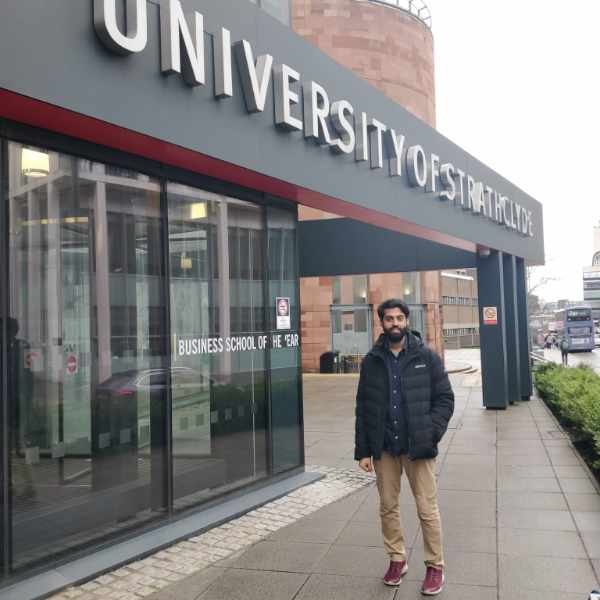
Site visits have allowed me to gain firsthand exposure to engineering marvels and deepen my understanding of the practical applications of theoretical concepts learned in the classroom. Moreover, they have provided valuable insights into the real-world challenges and considerations involved in large-scale infrastructure projects.
MSc Civil Engineering (Structural Engineering and Project Management) student
Fees & funding
All fees quoted are for full-time courses and per academic year unless stated otherwise.
Please note:
- for courses that have a January 2026 start date, 2025/26 academic year fees will apply
- for courses that have a September 2026 start date, 2026/27 academic year fees will apply
Fees may be subject to updates to maintain accuracy. Tuition fees will be notified in your offer letter.
All fees are in £ sterling, unless otherwise stated, and may be subject to revision.
Annual revision of fees
Students on programmes of study of more than one year (or studying standalone modules) should be aware that the majority of fees will increase annually.
The University will take a range of factors into account, including, but not limited to, UK inflation, changes in delivery costs and changes in Scottish and/or UK Government funding. Changes in fees will be published on the University website in October each year for the following year of study and any annual increase will be capped at a maximum of 10% per year. This cap will apply to fees from 2026/27 onwards, which will not increase by more than 10% from the previous year for continuing students.
| Scotland | £11,900 |
|---|---|
| England, Wales & Northern Ireland | £11,900 |
| Republic of Ireland |
If you are an Irish citizen and have been ordinary resident in the Republic of Ireland for the three years prior to the relevant date, and will be coming to Scotland for Educational purposes only, you will meet the criteria of England, Wales & Northern Ireland fee status. For more information and advice on tuition fee status, you can visit the UKCISA - International student advice and guidance - Scotland: fee status webpage. Find out more about the University of Strathclyde's fee assessments process. |
| International | £30,250 |
| Available scholarships |
Take a look at our scholarships search for funding opportunities. |
Please note: the fees shown are annual and may be subject to an increase each year. Find out more about fees.
Fees & funding
All fees quoted are for full-time courses and per academic year unless stated otherwise.
Please note:
- for courses that have a January 2026 start date, 2025/26 academic year fees will apply
- for courses that have a September 2026 start date, 2026/27 academic year fees will apply
Fees may be subject to updates to maintain accuracy. Tuition fees will be notified in your offer letter.
All fees are in £ sterling, unless otherwise stated, and may be subject to revision.
Annual revision of fees
Students on programmes of study of more than one year (or studying standalone modules) should be aware that the majority of fees will increase annually.
The University will take a range of factors into account, including, but not limited to, UK inflation, changes in delivery costs and changes in Scottish and/or UK Government funding. Changes in fees will be published on the University website in October each year for the following year of study and any annual increase will be capped at a maximum of 10% per year. This cap will apply to fees from 2026/27 onwards, which will not increase by more than 10% from the previous year for continuing students.
| Scotland | £12,550 |
|---|---|
| England, Wales & Northern Ireland | £12,550 |
| Republic of Ireland |
If you are an Irish citizen and have been ordinary resident in the Republic of Ireland for the three years prior to the relevant date, and will be coming to Scotland for Educational purposes only, you will meet the criteria of England, Wales & Northern Ireland fee status. For more information and advice on tuition fee status, you can visit the UKCISA - International student advice and guidance - Scotland: fee status webpage. Find out more about the University of Strathclyde's fee assessments process. |
| International | £31,900 |
| Available scholarships |
Take a look at our scholarships search for funding opportunities. |
Please note: the fees shown are annual and may be subject to an increase each year. Find out more about fees.
Scholarships available for September 2026
Faculty of Engineering International Scholarship for Masters Study
We are delighted to offer our Faculty of Engineering International Scholarship for Masters Study for applicants to postgraduate taught degrees starting in September 2026. The scholarship award of £6,000 will be deducted from tuition fees.
Dean's International Excellence Awards
We also have a limited number of Dean’s International Excellence Awards for postgraduate taught applicants joining the Faculty of Engineering in September 2026. These scholarships are worth between £9,000 and £12,000 and will be offered to exceptional applicants at postgraduate taught level only.
How can I fund my course?
Scottish postgraduate students
Scottish postgraduate students may be able to apply for support from the Student Awards Agency Scotland (SAAS). The support is in the form of a tuition fee loan and for eligible students, a living cost loan. Find out more about the support and how to apply.
Don’t forget to check our scholarship search for more help with fees and funding.
Students coming from England
Students ordinarily resident in England may be to apply for postgraduate support from Student Finance England. The support is a loan of up to £10,280 which can be used for both tuition fees and living costs. Find out more about the support and how to apply.
Don’t forget to check our scholarship search for more help with fees and funding.
Students coming from Wales
Students ordinarily resident in Wales may be to apply for postgraduate support from Student Finance Wales. The support is a loan of up to £10,280 which can be used for both tuition fees and living costs. Find out more about the support and how to apply.
Don’t forget to check our scholarship search for more help with fees and funding.
Students coming from Northern Ireland
Postgraduate students who are ordinarily resident in Northern Ireland may be able to apply for support from Student Finance Northern Ireland. The support is a tuition fee loan of up to £5,500. Find out more about the support and how to apply.
Don’t forget to check our scholarship search for more help with fees and funding.
International students
We've a large range of scholarships available to help you fund your studies. Check our scholarship search for more help with fees and funding.
Alumni Scholarship
Strathclyde graduates can get a 15% tuition fee discount on postgraduate taught courses running in September and January. All alumni will be eligible for the discount, including those who have studied at Strathclyde on an exchange or study abroad programme.
Careers
We work closely with the University Careers Service. They offer advice and guidance on career planning and looking for and applying for jobs. In addition, they administer and publicise graduate and work experience opportunities.
High-calibre civil engineers are in demand throughout the world. As a graduate, you'll have many different career options including:
- engineering consultancies, where the work normally involves planning and designing projects
- contractors, where you’ll be managing and overseeing works on-site
- working for utilities or local authorities
- working for large companies such as those within oil & gas production, mining, power generation, renewable energy & sustainable infrastructure
How much will I earn?
As a contracting civil engineer the average graduate starting salary is between £26,000 and £35,000. With around three to five years of experience, you can expect to earn £35,000 to £45,000.*
Post Study Work
Student visa holders can check out their post-study work options on our Working After Studies guidance.
Glasgow is Scotland's biggest & most cosmopolitan city
Our campus is based right in the very heart of Glasgow. We're in the city centre, next to the Merchant City, both of which are great locations for sightseeing, shopping and socialising alongside your studies.
Apply
During the application process, you're required to upload the following supporting documents. If these are not provided, we'll not be able to process your application:
- certified individual semester mark sheets/academic transcript showing subjects taken and grades achieved for all qualifications
- if still studying, provide individual semester mark sheets to date
- certified degree certificate for all qualifications
- if still studying, provide this after completing the qualification
- provide evidence of suitable English language proficiency if English is not your first language, or you're not from a “UKVI recognised "Majority English Speaking" country”; check the University’s language requirements
- if you have been out of full-time education for over two years, provide a CV, detailing employment history, organisations worked for and a brief description of roles and responsibilities
- a copy of your passport containing your photo and passport number
- a copy of your sponsor letter/scholarship award (if appropriate)
- names, job titles and email addresses for two nominated referees
Start date: Sep 2026
Civil Engineering
Start date: Sep 2026
Civil Engineering
Contact us
Have you considered?
We've a range of postgraduate taught and Masters courses similar to this one which may also be of interest.

